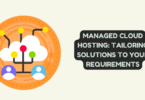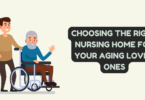
Nurse
Community health outreach and education refer to the efforts made by healthcare professionals and community organizations to promote health and prevent disease within a specific population or geographic area.
This can include health screenings, educational workshops, public awareness campaigns, and the provision of healthcare services and resources to underserved or disadvantaged communities.
The ultimate goal of community health outreach and education is to improve individuals’ and communities’ overall health and well-being by providing access to healthcare services and information and empowering individuals to make informed decisions about their health.
Nurses play a crucial role in these efforts, as they are often the primary point of contact for individuals seeking healthcare services and information in the community.
Community Health: Empowering People Through Nursing
Community health outreach and education are essential components of public health efforts to improve the health and well-being of individuals and communities. It can help to reduce health disparities and address health inequities by providing access to healthcare services and information to underserved or disadvantaged communities.
By promoting health literacy and empowering individuals to make informed decisions about their health, community health outreach and education can help to prevent the onset of chronic diseases and improve overall population health.
Good community health outreach and education can also help reduce healthcare costs by preventing the need for more expensive medical interventions. For example, education programs about healthy lifestyles and disease prevention can help to reduce the risk of developing chronic conditions such as diabetes, heart disease, and obesity, which can significantly impact healthcare costs.
Community health outreach and education are vital in improving public health by promoting access to healthcare services and information, empowering individuals to make healthy choices, and preventing the onset of chronic diseases.
Nurses and Community Health
Nurses play a crucial role in community health outreach and education as they are often the primary point of contact for individuals seeking healthcare services and information in the community.
They are responsible for assessing the community’s health needs and developing and implementing programs and initiatives to address them. This can include providing direct healthcare services such as screenings, immunizations, and health assessments and educating individuals about health and disease prevention.
Nurses as Health Advocates
In addition to providing direct care, nurses also play a vital role in advocating for the health and well-being of the community. This can include collaborating with other healthcare professionals and community organizations to develop and implement comprehensive health programs and working with policymakers to advocate for policies that promote public health.
The Scope of Nursing Practice in Community Health Outreach and Education
The scope of nursing practice in community health outreach and education is wide and varied, as nurses are responsible for various activities and responsibilities in this area.
Some key roles and responsibilities of nurses in community health outreach and education include:
- Primary healthcare providers – Nurses often serve as the primary point of contact for individuals seeking healthcare services and information in the community. They are responsible for providing various healthcare services such as screenings, immunizations, health assessments, and patient education.
- Educators and advocates – Nurses are responsible for educating individuals about health and disease prevention and advocating for the health and well-being of the community. This can include providing information about healthy lifestyles, preventive care, and disease management and working with policymakers to advocate for policies that promote public health.
- Leaders and coordinators – Nurses often serve as leaders and coordinators of community health initiatives, working with other healthcare professionals and community organizations to develop and implement comprehensive health programs. They are responsible for assessing the community’s needs and developing strategies to address those needs, as well as coordinating the efforts of different stakeholders to ensure that programs are effective and sustainable.
Primary Care Nursing
Nurses play a crucial role as primary healthcare providers in the community, serving as the first point of contact for individuals seeking healthcare services and information. In this role, nurses are responsible for providing a range of healthcare services, such as screenings, immunizations, and health assessments, as well as educating individuals about health and disease prevention.
In addition to providing direct care, nurses also play a vital role in coordinating healthcare services and resources within the community. They work with other healthcare professionals and community organizations to ensure that individuals can access the healthcare services and information they need.
This can include coordinating referrals to specialists, facilitating access to medical equipment and supplies, and connecting individuals with community resources such as support groups and social services.
Overall, nurses serve as primary healthcare providers in the community, providing direct care and coordinating healthcare services and resources to ensure that individuals have access to the care they need.
Nurses As Educators and Advocates
Nurses play a crucial role as educators and advocates for health promotion and disease prevention in the community. In this role, they are responsible for educating individuals about health and disease prevention and advocating for policies and practices that promote public health.
As educators, nurses provide individuals with information about healthy lifestyles, preventive care, and disease management. This can include providing educational materials and resources, conducting health screenings and assessments, and working with individuals to develop personalized health plans. Nurses may also educate the community about specific health issues or concerns, such as infectious diseases, chronic conditions, or environmental health risks.
As advocates, nurses promote policies and practices that support the health and well-being of the community. This can include collaborating with policymakers and community organizations to advocate for policies that promote public health, such as access to healthcare services, health education, and disease prevention. Nurses may also advocate for the rights of individuals and communities to receive high-quality healthcare and live in healthy environments.
Nurses serve as important educators and advocates for health promotion and disease prevention in the community, working to empower individuals to make informed decisions about their health and to advocate for policies that support the health and well-being of the community.
Nurses And Community Health Initiatives
Nurses are vital as leaders and coordinators of community health initiatives, working with other healthcare professionals and community organizations to develop and implement comprehensive health programs.
In this role, they are responsible for assessing the community’s health needs and developing strategies to address them.
To effectively lead and coordinate community health initiatives, nurses must have strong communication, leadership, and collaboration skills. They must be able to assess the community’s needs, identify potential solutions, and work with other stakeholders to implement and sustain those solutions.
Nurses may also be responsible for managing budgets and resources and evaluating the effectiveness of community health programs.
In addition to leading and coordinating community health initiatives, nurses may also serve as mentors and role models for other healthcare professionals and community members. By sharing their expertise and experience, nurses can help to build capacity and support the development of future leaders in community health.
Nurses play a crucial role as leaders and coordinators of community health initiatives, working to improve the health and well-being of communities through comprehensive health programs and mentoring and supporting future leaders’ development.
The Future of Nursing and Community Health Outreach and Education
The future of the nursing profession and community health outreach and education is bright, with many opportunities for nurses to significantly impact the health of their communities. One key area for nursing leadership in community health outreach and education is developing and implementing evidence-based programs and interventions that address the specific needs of a community. Working with an aging population will become a bigger part of every nurse’s role in the future; click here to learn more about how the nursing profession is adapting its education approach to support an aging population.
Nurses are well-positioned to work with community members and other healthcare professionals to identify and address health disparities and to develop and implement strategies that promote health equity, especially in marginalized populations like the elderly.
Another area where nurses can contribute to the future of community health outreach and education is through policy development and advocacy. Nurses have a unique understanding of the healthcare needs of their communities and can use this knowledge to advocate for policies that promote health and equity.
This can include working with policymakers to develop legislation or regulations that support community health efforts or working with community organizations to advocate for change at the local level.
Nursing education is important in preparing nurses for community health outreach and education. By incorporating coursework and experiential learning opportunities that focus on community health, nursing programs can develop the skills and knowledge nurses need to be effective leaders in this field.
This can include public health, community assessment, health promotion coursework, and experiential learning through community-based projects or internships.
By preparing nurses to be leaders in community health outreach and education, nursing education can help to ensure that nurses are well-equipped to meet the healthcare needs of their communities now and in the future.
Strategies for Effective Community Health Outreach and Education
Effective community health outreach and education begin with assessing the community’s needs. This can involve gathering information about community members’ health concerns and behaviors and identifying resources and challenges that may impact their health.
Some strategies for assessing the needs of a community include:
- Conducting a needs assessment – This involves collecting data about community members’ health status and behaviors and identifying any social, economic, or environmental factors that may impact their health. This can be done through surveys, focus groups, or interviews with community members, as well as through the analysis of existing data sources such as health department records or census data.
- Engaging with community members – It is important to involve community members in the assessment process, as they are the experts on their own needs and experiences. This can be done through community meetings, town halls, or other forms of outreach, such as door-to-door canvassing or social media campaigns.
- Partnering with local organizations – Partnering with local organizations such as schools, faith-based groups, or community centers can help reach a wide range of community members and gather valuable insights into the community’s needs.
Once the community’s needs have been assessed, it is important to use this information to develop targeted, evidence-based interventions and education programs that address the identified needs. This may involve working with community members to co-create and implement strategies and utilizing best practices and existing resources to support the efforts.
Developing And Implementing Community Health Programs
Once the community’s needs have been identified, developing and implementing programs and interventions that address them is essential.
This can involve working with community members to co-create and implement strategies tailored to the community’s specific needs and resources. It may also involve utilizing best practices and existing resources to support the efforts.
Collaborating With Other Healthcare Professionals And Community Organizations
Effective community health outreach and education often involve collaborating with healthcare professionals and community organizations. This can include working with doctors, nurses, social workers, and other healthcare providers and partnering with local schools, faith-based groups, and other community organizations.
Collaboration can leverage resources and expertise and help build trust and buy-in from community members.
Utilizing Technology And Social Media To Reach A Wider Audience
Technology and social media can be powerful tools for reaching a wider audience and promoting community health outreach and education efforts. This can include using social media platforms to share information and resources and utilizing online tools such as webinars or virtual community meetings.
It is important to consider the needs and preferences of the community when utilizing technology and to ensure that information is presented in a way that is accessible and engaging.
Conclusion
In conclusion, community health outreach and education are vital in improving public health by addressing a community’s specific needs and challenges. This can involve assessing the community’s needs, developing and implementing targeted programs and interventions, and collaborating with other healthcare professionals and community organizations.
Nurses have a crucial role in community health outreach and education, as they are often on the front lines of care and have a unique understanding of the health needs of their communities. Through their skills and expertise, nurses have the potential to make a significant impact in their communities through community health outreach and education.
By improving the health of the communities they serve, nurses can help create healthier, more vibrant, and more equitable communities for all.






